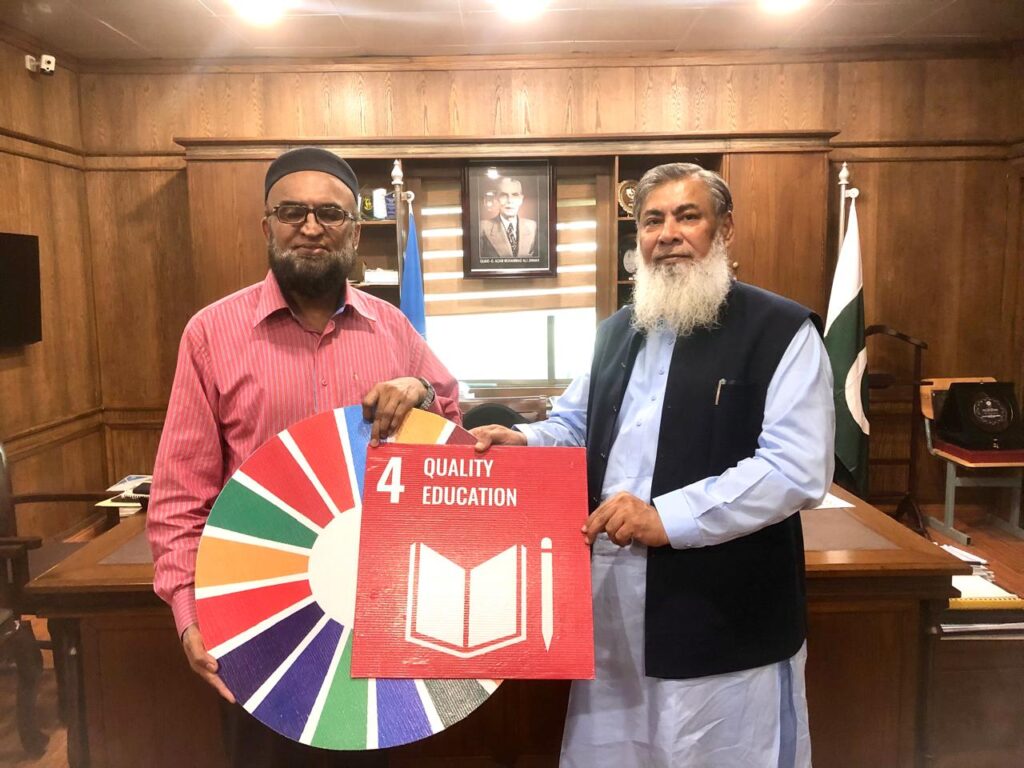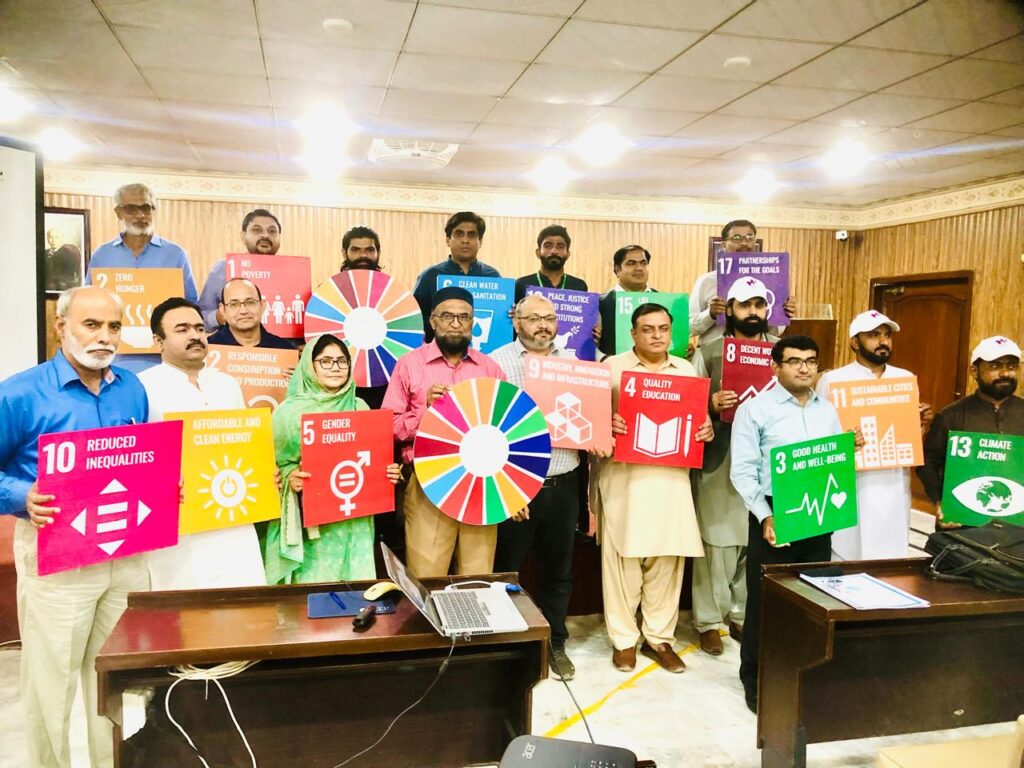
In an era where sustainability is no longer an option but a necessity, the Quaid-e-Awam University of Engineering, Science & Technology (QUEST), Nawabshah, took a pivotal step forward by organizing a workshop titled “Localizing Sustainable Development Goals: Building Institutional Capacity (for Sectional Heads).”
This event, held on 19th November 2024, aimed to equip the university’s sectional heads with the knowledge, tools, and strategies to align institutional practices with the United Nations’ Sustainable Development Goals (SDGs).
The workshop, facilitated by the esteemed Prof. Dr. Abdul Sattar Saand, Professor and Head of the Department of Electrical Engineering at QUEST, brought together sectional heads from various departments to explore how the global SDGs could be localized within the university’s operational and academic framework. The session was inaugurated by Prof. Dr. Saleem Raza Samo, Vice Chancellor of QUEST, who, in his opening remarks, emphasized the importance of sustainability in academia and its far-reaching impact on society.

Dr. Samo highlighted the university’s commitment to integrating the SDGs into its academic, administrative, and community outreach programs. “This initiative,” he stated, “is not just about meeting targets; it’s about fostering a culture of responsibility and innovation that resonates beyond the university walls.
The workshop focused on the following key objectives:
• Awareness Building: Enhancing understanding of the 17 SDGs and their relevance in the institutional and local contexts.
• Capacity Development: Empowering sectional heads to incorporate sustainability-focused strategies in their departmental goals and activities.
• Collaboration and Implementation: Encouraging cross-departmental collaboration to develop actionable plans that align with SDG principles.
• Monitoring and Evaluation: Introducing tools to assess the impact of SDG-driven initiatives within the university.
The workshop included interactive presentations, group discussions, and brainstorming sessions. Prof. Dr. Saand provided valuable insights into the localization of SDGs, emphasizing the need to tailor global objectives to address local challenges effectively. Participants actively engaged in identifying ways their respective departments could contribute to the goals.
Case studies from other institutions were presented, showcasing successful implementations of SDG-related initiatives. These examples inspired participants to think creatively and collaboratively about their roles in advancing sustainability.
The workshop concluded with the formulation of a preliminary action plan, outlining department-specific contributions to the SDGs. Participants expressed a renewed sense of purpose and responsibility, with many committing to tangible steps toward embedding sustainability in their departments.
Key takeaways from the workshop include:
• The establishment of an SDG Task Force at QUEST to monitor progress and provide guidance.
• Plans for integrating SDG-focused topics into the university’s curriculum and extracurricular activities.
• Strengthened commitment to community outreach programs that align with the SDGs.
The workshop’s success was a testament to the leadership and vision of Prof. Dr. Saleem Raza Samo, whose unwavering commitment to sustainable development has positioned QUEST to become the hub for a SDG localization among higher education in district shaheed Benazirabad. Special appreciation was extended to Prof. Dr. Abdul Sattar Saand for his expertise and dedication in facilitating the session.
The event ended with a note of gratitude , who recognized the active participation of the sectional heads, and international NGOs HUMAN APPEAL and NOWPND the collaborative spirit that defined the workshop.
This workshop marks a significant milestone in QUEST’s journey toward becoming a sustainability-focused institution. By empowering its leadership and fostering a culture of innovation and collaboration, the university is not only contributing to the global SDG agenda but also ensuring a brighter, more sustainable future for its community.
This transformative initiative is a shining example of how academia can lead the way in driving meaningful change and making sustainability a reality.
